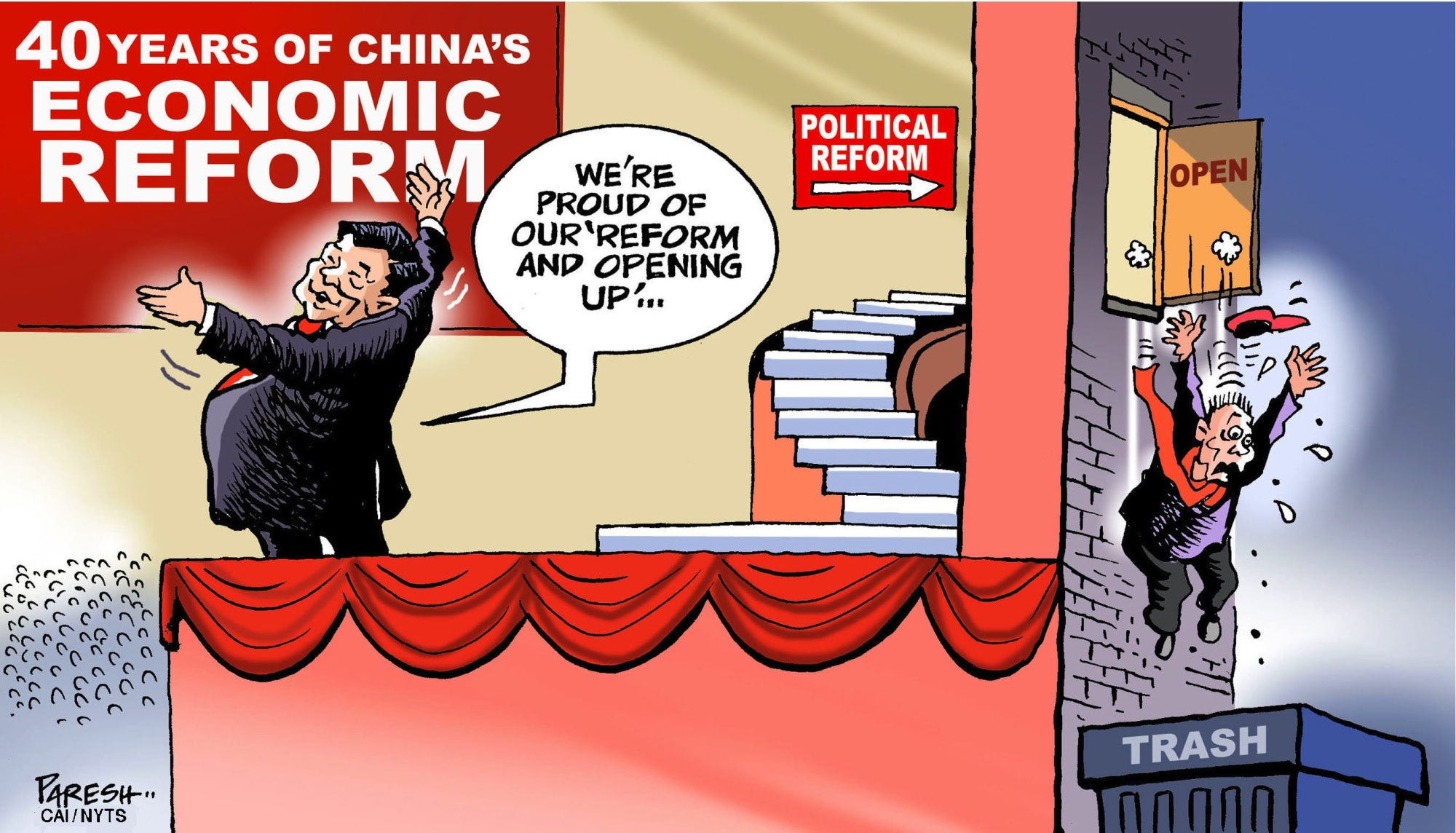Nobody can know if, when Deng Xiaoping launched his strategy of "Reform and Opening Up" 40 years ago, even he could have predicted the near-miraculous transformation of the Chinese economy that would follow. In the years since then, hundreds of millions have been lifted out of abject poverty and into the ranks of the global middle class; China's industrial heartland became the workshop of the world; and the People's Republic has muscled its way into the first rank of global powers.
Yet the tone with which Chinese Communist Party functionaries look back on this performance grates — and for good reason. China's leaders view the country's rise with a certain smugness: as a vindication of their model of governance, their form of state capitalism and their obsession with control. Meanwhile, the rest of the world is slowly coming to the realization that the party and its model don't deserve all or even most of the credit.
The primary drivers of this economic miracle have been the industrious and entrepreneurial Chinese people — from those who took a chance on township and village enterprises early on in the reform process, to the migrant workers who labored under unrewarding conditions to build the vast industrial complex that is the Pearl River delta, to those who, today, sit in smart Shanghai coffeehouses doodling high-tech business plans on napkins.

















With your current subscription plan you can comment on stories. However, before writing your first comment, please create a display name in the Profile section of your subscriber account page.